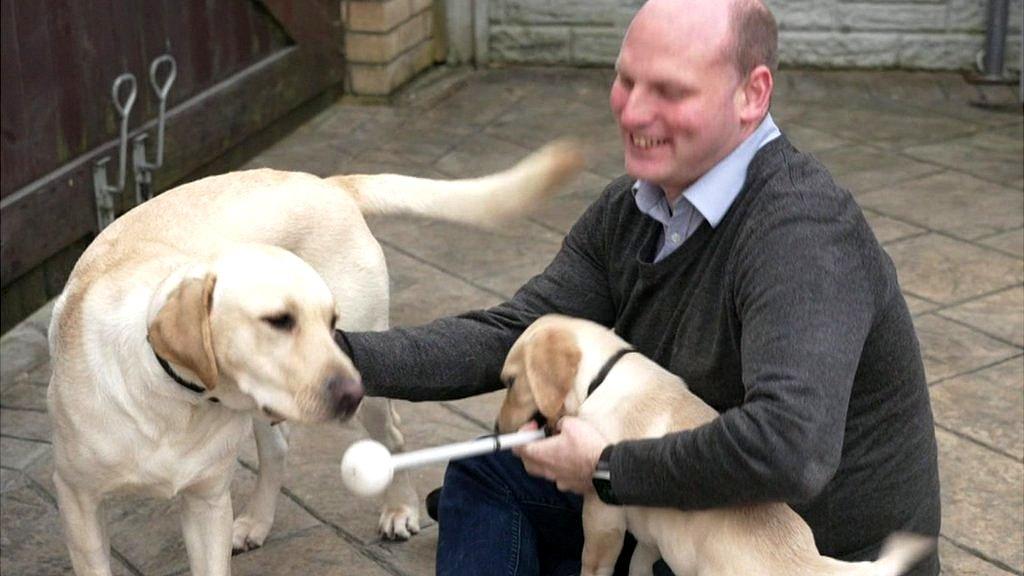Tyneside woman's agony of two-year wait for guide dog
- Published
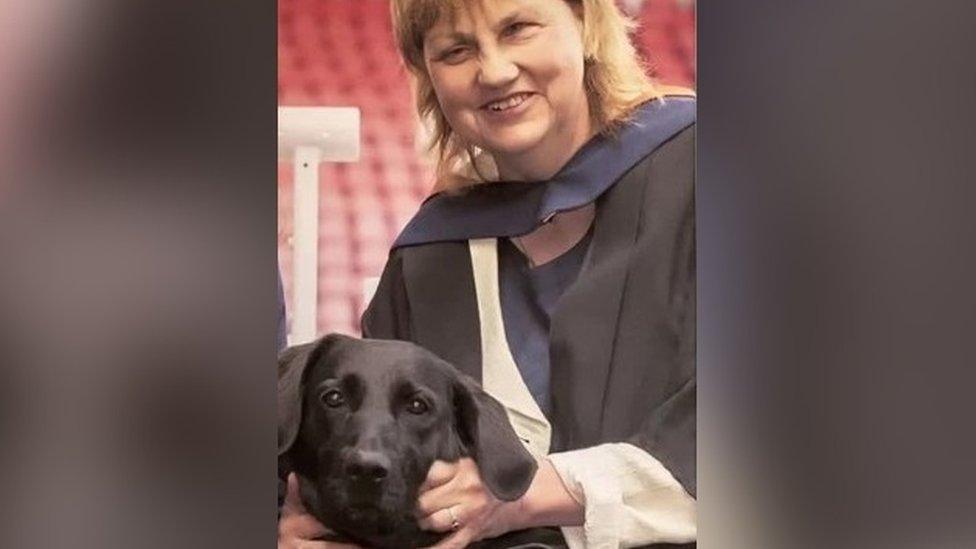
Paula Richardson said she had not been out of her home alone since losing Unity
A blind woman says has not been out alone for more than two years as she has been waiting for a new guide dog.
Healthcare worker Paula Richardson, from Tyneside, said she could not understand why the process to find her a dog was taking so long.
She has been without a guide dog since the sudden death of her previous one - Unity - in January 2021.
The charity Guide Dogs said the pandemic had led to delays in the availability and training of dogs.
Ms Richardson told BBC Radio Newcastle she was devastated when German shepherd-retriever cross Unity died.
"I've had five guide dogs over 43 years and my last guide dog was seven years old when she got a heart problem," she said.
"On the Friday she was fine and by the Monday she was put to sleep.
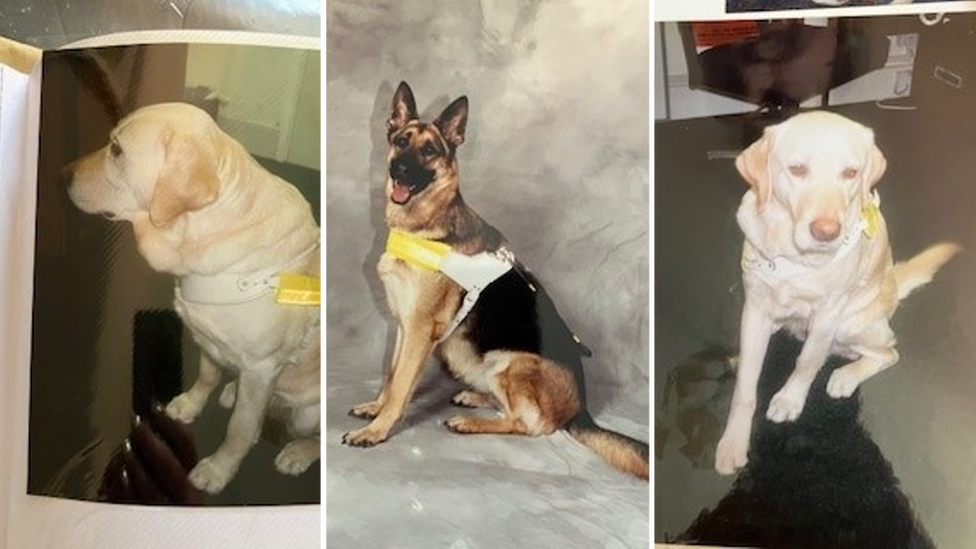
Paula Richardson's previous guide dogs
"I've not been out of the house alone for two-and-a-half years. I don't use a white cane and I'm anxious when I'm out but when I'm with my dogs they give me confidence."
Although she has a daughter, Ms Richardson said she did not want her to become a carer or to be a burden to her.
"I've never wanted her to do things for me," she said. "I don't want to become dependant on her because I don't have a dog."
Jane Louth, services operations manager at the Guide Dogs in Newcastle, said the charity was "moving in the right direction" but it would take time to recover from delays caused by Covid.
"We halted the breeding process during the pandemic so there was a reduced supply of dogs in 2021 and it takes two years to create a partnership and train a guide dog," Ms Louth said.
"With our new facility in Newcastle we can double the amount of dogs to be trained and with our priority waiters like Paula every dog that's available for matching is looked at but it's a unique match we're looking for - that's why some people wait longer than others."
She added the charity was now seeing an increase in dogs coming through training, with 45 dogs a year being trained.
The charity says it needs volunteer puppy raisers who can look after and train a puppy from 8 weeks until it goes into specialist guide dog training after a year; and also fosterers who will look after the dogs for a few months while they go through training and are then eventually matched with someone with sight loss.
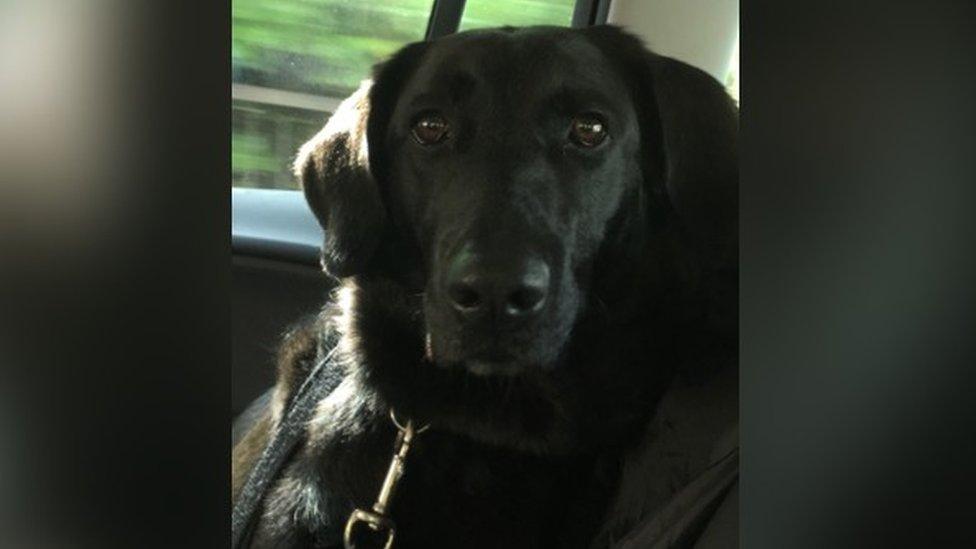
Guide dog Unity had to be put to sleep after developing heart problems
Ms Richardson said she used her guide dogs to communicate visual information, by feeling their heads so she could tell if someone was approaching.
"The dog would give me information in the way she moved her ears, she'd lift one ear up and I'd know how close somebody was."
She said her social life had diminished and no longer wanted to go out, unless it was for work when she was collected from home.
"I don't want to be needy and dependant - I used to go to choir but I don't now.
"It's a scary world out there when you don't see anything."

Follow BBC North East & Cumbria on Twitter, external, Facebook, external and Instagram, external. Send your story ideas to northeastandcumbria@bbc.co.uk, external.
Related topics
- Published15 May 2023
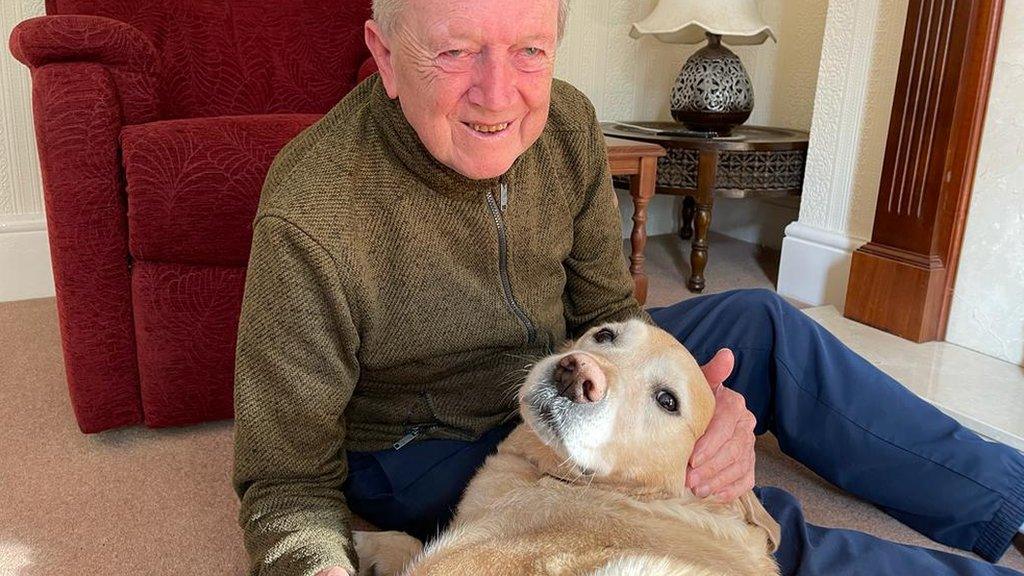
- Published19 April 2023
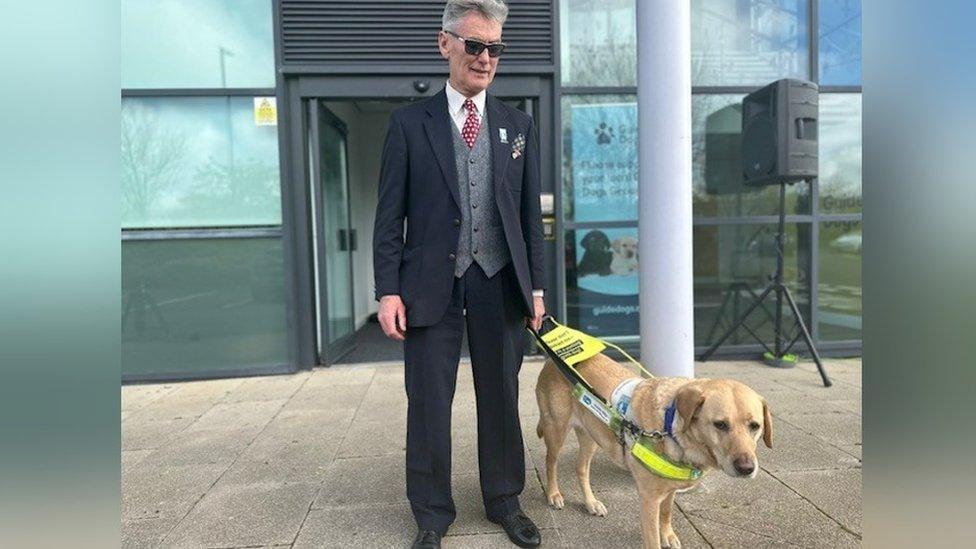
- Published17 April 2023
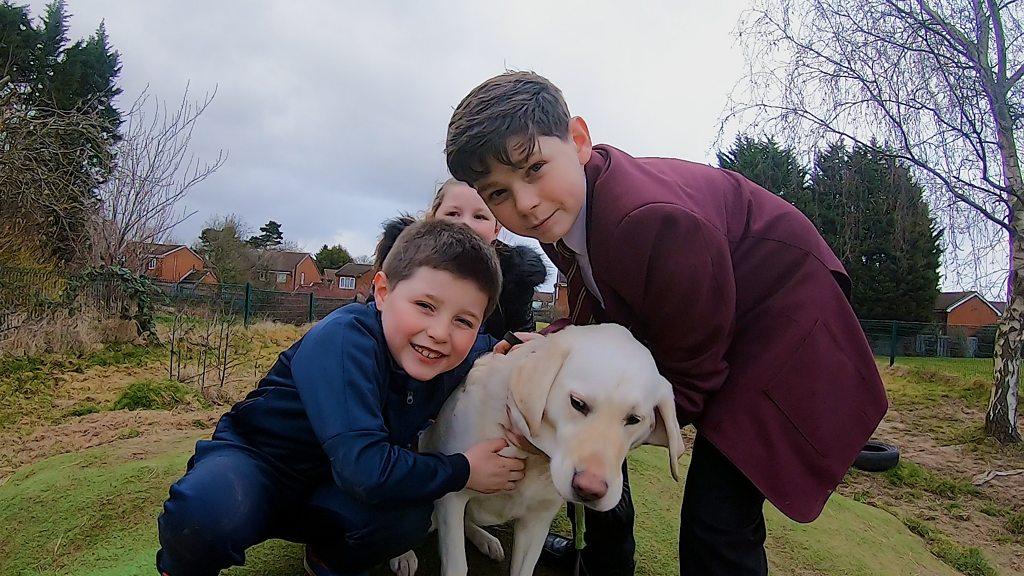
- Published1 March 2023
